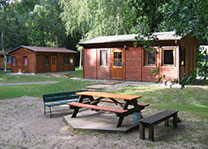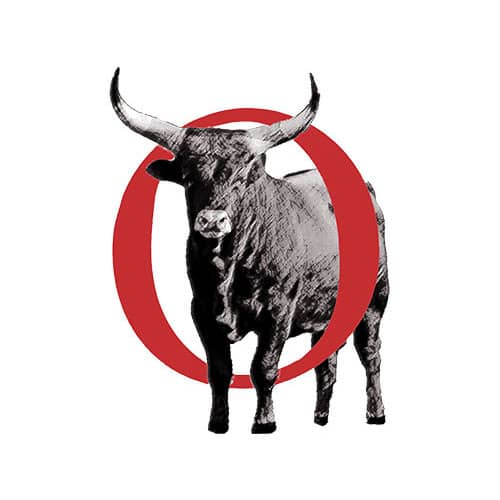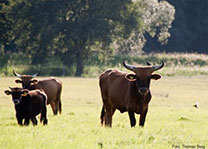Water in the floodplain (June 1st, 2010)
“Floods are part of a floodplain national park, so the current decision to flood the polders was the right one, despite the losses for local agriculture. But it is only the second best solution.
Much better than the torrent-like flooding of the polders would be a gentle flooding of the floodplain, which could be reached easily and cheaply if the inlet and outlet structures, for example in the Fiddichower polder (10), remained open all year round, as was the case with the Brandenburg water study Environment Ministry also suggests. Then many animals of the polder who cannot fly and swim would have the opportunity to gradually withdraw and would not have to die miserably, completely surprised by the rapidly rising tide. Not only small game, even deer and wild boar, as can currently be observed, are victims of the torrent-like floods. It doesn’t have to be, it’s unecological and also a violation of animal welfare.
Incidentally, the farmers working in the Fiddichow Polder (10) have given their written consent that the costly and energy-intensive pumping operation can be discontinued and that the inlet and outlet structures can remain open all year round. They were otherwise held harmless for this. This written consent of the farmers is deliberately ignored by the national park administration because it did not “grow on their dung”, but was reached by the association, which the administration only perceives as annoying competition. This basically silly rivalry has to stop!
The current flood of the century is a good opportunity to think about an ecological flood régime of the future and to make sensible and sustainable decisions. ”
Thomas Berg
CEO








